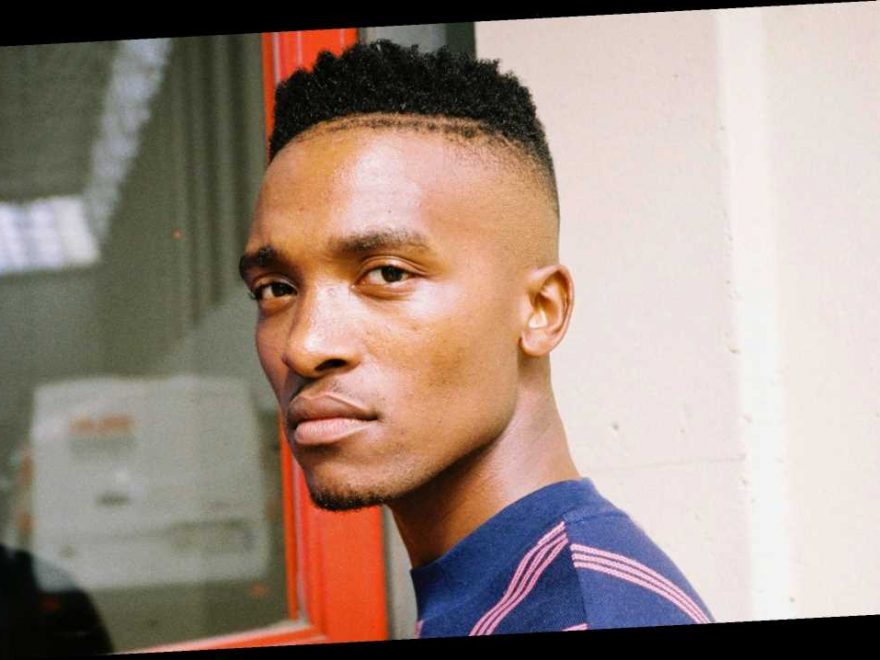At the end of September, an MC grabbed a hold of the microphone at a small but crowded club in Durban, South Africa. “Who knows about ‘Amanikiniki?’” he bellowed. “It’s a hit.”
“Amanikiniki” is a hard-charging club single — brute-force bass, sing-song vocals — from the producer DJ Lag, working in collaboration with Unticipated Soundz. DJ Lag released a new video for the track today, which, like many music videos, is full of fancy footwork and kinetic dancing. But unlike many music videos, this one is edited for easy vertical viewing on a mobile device. “People don’t watch music videos on TV anymore,” DJ Lag explains. “So we decided to come up with a music video just for phone.”
The “Amanikiniki” video is the latest in a steady string of releases from DJ Lag this year: The Steam Rooms EP with Okzharp; the Uhuru EP; the “Anywhere We Go” single with Shekhinah; and “My Power,” from Beyoncé’s The Lion King: The Gift album, which is now the producer’s most visible track on streaming platforms.
DJ Lag got his start as a dancer, but he would accompany a cousin who rapped on trips to the studio, and he soon became enthralled with the process of production. Once DJ Lag got his hands on a copy of the program FL Studios, his early music was modeled after that of the star South African house producer Black Coffee. But DJ Lag soon refocused on a budding style that was more rugged and more rapid: gqom.
Related

Beyoncé's 'Lion King: The Gift' Suggests a New Direction — and a New Challenge
Samthing Soweto Thought He Was Too Old for Streaming Success. He Was Wrong
Related

Jeff Buckley's 'Grace': 10 Things You Didn't Know
War of the Crowes
The producer began to win fans and get bookings locally while he was still in high school; DJ Lag had to learn to entertain a club when he wasn’t doing his homework. By the time he graduated, he was able to make a living “mostly through shows, a few sync projects.”
Like many genres that start in underground clubs, gqom was gradually incorporated into the mainstream. “Since 2016, gqom got commercial and played on the radios,” DJ Lag says. “We were able to put music videos on TV.” (Now it’s been eclipsed by a style known as amapiano, which is slower and more melodic.)
Increased awareness of gqom might help explain why, when Beyoncé visited South Africa for the Global Citizen Festival in 2018, she played a snippet of DJ Lags 2017 single “Trip to New York” during her performance. A few days later, her team reach out to the producer, asking him to send beats. He sent four; they bought two; and this year, he found himself in Los Angeles putting the finishing touches on “My Power.”
DJ Lag’s trip to L.A. was an eventful one: Not only did he work with Beyoncé, but Diplo made an unannounced appearance while DJ Lag was playing at a small club. “He came to the show and was just sitting there — no one saw him in the club,” DJ Lag says. “That venue’s so small. It’s not a venue you expect to see Diplo in. Then he comes up like, ‘hey, let’s play back to back.’” The two exchanged numbers, and Uhuru, DJ Lag’s latest EP, is being released by Diplo’s label, Mad Decent.
While DJ Lag intended Uhuru to invoke gqom’s early days, he also showed his knack for pop fusions on “Anywhere We Go” with Shekhinah. Shekhinah‘s handsome 2017 single “Suited,” is certified ten-times platinum in South Africa, and she adapts easily to DJ Lag’s skeletal, hard-driving beat. Her gliding lines keep the track airborne — and smooth the production’s jagged edges.
There may be more fusions like this in his future. “Next year I’m going to drop my album,” DJ Lag says. “I want to play with more big American artists, get them to do features,” he adds. “Rihanna could be sick on gqom track.”
Source: Read Full Article
